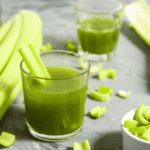How long does an orange last? This is a common question that many people have when they purchase oranges or receive them as gifts. Oranges are a popular fruit known for their refreshing taste and high vitamin C content. However, like perishable food, oranges have a limited shelf life. In this article, we will explore the factors that affect the longevity of oranges and provide some tips on extending their freshness.
How Long Do Oranges Last?
Oranges are a popular and nutritious fruit that can be enjoyed in various ways, from eating them fresh to using their juice in recipes. Knowing how long oranges last at room temperature is essential as the shelf life of oranges can vary depending on several factors, including the type of orange, its ripeness when purchased, and how it is stored. On average, oranges can last about 1-2 weeks when stored at room temperature.
However, if you want to extend their shelf life, storing them in the refrigerator is recommended. Refrigerated oranges can last for up to 3-4 weeks. It is important to note that as oranges age, they may become softer and lose some of their juiciness, but they are still safe to consume as long as there are no signs of mold or spoilage.
Additionally, it is worth mentioning that freshly squeezed orange juice has a shorter shelf life compared to whole oranges. Once juiced, consuming the juice within 2-3 days is best for optimal freshness and taste.
How To Store Oranges?

Storing oranges properly is essential to maintain their freshness, flavor, and nutritional value. By following the proper storage techniques, you can extend the shelf life of oranges and enjoy their juicy goodness for longer. Here are some guidelines on how to store oranges:
Choose the Right Oranges
Select firm, smooth-skinned, and heavy for their size when purchasing oranges. Avoid oranges with soft spots, mold, or any signs of decay.
Room Temperature Storage
Oranges can be stored at room temperature for up to one week. However, they should be kept in a relaxed, well-ventilated area away from direct sunlight. Placing them in a fruit bowl or a mesh bag will allow air circulation and prevent moisture buildup.
Refrigeration
If you want to extend the shelf life of your oranges beyond one week, refrigeration is the best option. Before storing them in the refrigerator, ensure they are scorched to prevent mold growth. Here’s how to keep oranges in the fridge:
- If you have loose oranges, place them in the crisper drawer of your refrigerator. Ensure they are not overcrowded and have enough space for air circulation.
- Alternatively, you can store oranges in a perforated plastic bag or a resealable plastic bag with small holes punched. This method helps maintain humidity while allowing excess moisture to escape.
- Oranges should be stored at a temperature between 35°F (1°C) and 50°F (10°C) with a humidity level of around 85%. Most household refrigerators have a humidity control feature that can be adjusted accordingly.
Separate Spoiled Oranges
It’s essential to remove any spoiled or damaged oranges from the batch. One rotten orange can quickly spread mold and spoil the others. Regularly check your stored oranges and discard any that show signs of decay.
Freezing Oranges
If you have an abundance of oranges or want to preserve them for extended periods, freezing is an option. Here’s how to freeze oranges:
- Start by peeling the oranges and separating them into segments. Remove any seeds or pits.
- Place the orange pieces in a single layer on a baking sheet or tray lined with parchment paper. Make sure they are not touching each other.
- Put the tray in the freezer and allow the orange segments to freeze individually for about 2-3 hours.
- Once frozen, transfer the orange details to airtight containers or freezer bags. Label them with the date and store them in the freezer for up to six months.
How To Store Whole Oranges?
Here is how to store oranges long-term:
- Select oranges that are firm, smooth, and have a bright color. Avoid oranges with soft spots or mold.
- Oranges can be stored at room temperature for up to one week. Keep them in a cool and dry place, away from direct sunlight.
- Place oranges in the refrigerator if you want to store them for longer. Store them in a plastic bag or a perforated plastic bag to maintain moisture while allowing some airflow.
- Oranges can absorb odors, so avoiding strong-smelling foods like onions or garlic is best.
- It is recommended not to wash oranges before storing them, as moisture can promote mold growth. Wash them just before consuming them.
- Inspect the oranges regularly and remove any spoiled ones immediately to prevent the spread of mold or rot.
- If you have an abundance of oranges, you can freeze them later. Peel and section the oranges, remove any seeds and place them in an airtight container or freezer bag.
How To Store Cut Oranges?
To store cut oranges, follow the below-mentioned steps:
- Wrap the cut oranges tightly in plastic wrap or place them in an airtight container to prevent them from drying out and absorbing odors from other foods in the refrigerator.
- Store the cut oranges in the fridge at a temperature between 35°F (1.7°C) and 45°F (7.2°C).
- If you plan to store the cut oranges for an extended period, consider freezing them. Place the orange slices on a baking sheet lined with parchment paper and freeze them until firm. Then transfer the frozen pieces to a freezer-safe bag or container.
How To Freeze Oranges?
Here is how to freeze oranges quickly:
- Start washing the oranges thoroughly under running water to remove dirt or residue.
- Peel the oranges, removing the outer skin and pith. This step is optional, as you can freeze whole oranges as well.
- You can segment the oranges by cutting them into individual slices or wedges if desired. This will make it easier to use the frozen oranges later on.
- Check each orange segment for seeds and remove them if necessary.
- Line a baking tray with parchment paper or a silicone mat to prevent sticking.
- Place the peeled or segmented oranges on the tray in a single layer, ensuring they are not touching each other.
- Put the tray in the freezer and allow the oranges to freeze for about 2 hours or until they are firm.
- Once the oranges are frozen, transfer them to a freezer-safe bag or container. Remove any excess air from the bag before sealing it tightly.
- Write the freezing date on the bag or container to keep track of their freshness.
- Place the bag of frozen oranges back in the freezer for long-term storage.
How Can You Tell If An Orange Is Good?
How to tell if an orange is bad is essential. Hence, to determine if an orange is good, several factors must be considered. Firstly, examine the appearance of the orange. A good orange should have a bright and vibrant color, typically ranging from deep orange to bright yellow. Avoid oranges with dull or pale colors as they may indicate poor quality or overripeness.
Secondly, check the texture of the orange. It should feel firm and slightly heavy for its size, indicating juiciness. Avoid oranges that are too soft or have wrinkled skin, as these may be signs of decay or dehydration.
Additionally, give the orange a gentle squeeze to assess its firmness. A good orange will yield slightly to pressure but should be soft and smooth. Lastly, smell the orange. A ripe and good-quality orange will have a sweet and citrusy aroma. It may be spoiled or past its prime if it lacks fragrance or has an unpleasant odor.
The Risk Of Consuming Bad Oranges
What happens if you eat a bad orange is a primary concern. Consuming bad oranges can pose several risks to your health. Sour oranges refer to those that are spoiled, rotten, or contaminated with harmful substances. These risks can range from mild discomfort to severe illness, depending on the specific condition of the oranges and the contaminants present. It is essential to be aware of these risks and take necessary precautions when consuming oranges to ensure your well-being.
One of the primary risks associated with consuming sour oranges is food poisoning. Spoiled or rotten oranges can harbor bacteria such as Salmonella or E. coli, which can cause gastrointestinal issues like nausea, vomiting, diarrhea, and abdominal pain. These bacteria thrive in warm, moist environments, making spoiled oranges an ideal breeding ground. Also, mold growth on bad oranges can produce mycotoxins, leading to foodborne illnesses.
Another risk of consuming bad oranges is exposure to pesticides or other chemical contaminants. Oranges are often treated with pesticides during cultivation to protect them from pests and diseases. However, if these pesticides are not used correctly, or residues remain on the fruit after harvesting, they can risk human health. Prolonged exposure to certain pesticides has been linked to various health problems, including cancer, reproductive issues, and neurological disorders.
Furthermore, bad oranges may also contain fungal toxins known as mycotoxins. These toxins are produced by molds that grow on spoiled fruits and vegetables. Ingesting mycotoxins can adversely affect human health, ranging from mild symptoms like headaches and allergic reactions to more severe conditions such as liver damage and immune system suppression.
To minimize the risk of consuming bad oranges, it is essential to practice proper food safety measures. Inspect oranges before purchasing or destroying them, looking for signs of spoilage such as mold growth, discoloration, or an unpleasant odor. Wash oranges thoroughly under running water before peeling or cutting them to remove any potential contaminants on the surface. If you suspect that the orange is spoiled or contaminated, it is best to discard it to avoid any potential health risks.
Factors Affecting The Shelf Life Of Oranges
Various factors, including the condition of the fruit at harvest, storage conditions, and post-harvest treatments, can influence the shelf life of oranges. Understanding these factors is crucial for maintaining the quality and extending the shelf life of oranges.
Harvesting stage
The maturity stage at which oranges are harvested can significantly impact their shelf life. Oranges picked too early may have yet to develop their full flavor and sweetness, while those selected too late may be overripe and prone to spoilage. Therefore, it is essential to harvest oranges at the optimal stage of maturity to ensure a longer shelf life.
Storage temperature
Temperature plays a critical role in determining the shelf life of oranges. Oranges should be stored at temperatures between 4°C (39°F) and ten °C (50°F) to slow down the ripening process and inhibit microbial growth. Keeping oranges at lower temperatures can extend their shelf life by reducing respiration rates and slowing down enzymatic reactions that lead to deterioration.
Relative humidity
Maintaining appropriate humidity levels is essential for preserving the quality of oranges. High humidity can promote mold growth and decay, while low humidity can cause dehydration and shriveling of the fruit. The ideal relative humidity for storing oranges ranges from 85% to 90%. This level helps prevent moisture loss without creating a favorable environment for microbial growth.
Ventilation
Proper air circulation is crucial for maintaining the freshness of oranges. Adequate ventilation helps remove ethylene gas produced by the fruit, which can accelerate ripening and spoilage. It also helps control temperature and humidity levels within the storage environment, preventing the buildup of condensation that could lead to mold growth.
Packaging
Packaging protects oranges from physical damage, moisture loss, and contamination. Perforated plastic bags or crates with good airflow are commonly used for packaging oranges. These allow for proper ventilation while providing some protection against external factors that could affect the fruit’s shelf life.
Post-harvest treatments
Various post-harvest treatments can be applied to extend the shelf life of oranges. One standard treatment is the application of fungicides to control fungal diseases and reduce decay. Additionally, wax coatings are often applied to oranges to minimize moisture loss and maintain their appearance. These treatments help preserve the quality and freshness of the fruit during storage and transportation.
Health Benefits Of Eating Oranges
Oranges are not only delicious and refreshing, but they also offer a wide range of health benefits. Packed with essential nutrients, oranges can contribute to overall well-being and support various bodily functions. Here are some of the vital health benefits of eating oranges:
Rich in Vitamin C
Oranges are renowned for their high vitamin C content. This essential nutrient plays a crucial role in supporting the immune system by stimulating the production of white blood cells, which help fight off infections and diseases. Vitamin C also acts as an antioxidant, protecting cells from damage caused by harmful free radicals. Additionally, it aids in collagen production, promoting healthy skin, gums, and blood vessels.
Boosts Heart Health
Oranges contain flavonoids, such as hesperidin, linked to improved heart health. These compounds have antioxidant properties that help reduce inflammation and oxidative stress in the cardiovascular system. Regular consumption of oranges may help lower blood pressure levels and reduce the risk of heart disease.
Provides Dietary Fiber
Oranges are an excellent dietary fiber source, essential for maintaining a healthy digestive system. Fiber adds bulk to the stool, preventing constipation and promoting regular bowel movements. It also helps regulate blood sugar levels by slowing down the absorption of sugar into the bloodstream. Including oranges in your diet can improve digestion and overall gut health.
Supports Weight Management
Oranges are low in calories and high in fiber, making them a great addition to a weight management plan. The fiber content helps you feel fuller for extended periods, reducing the likelihood of overeating or snacking on unhealthy foods. Additionally, oranges have a high water content, which can help keep you hydrated and aid in weight loss efforts.
Different Ways To Use Overripe Oranges
Here are different ways to use overripe oranges:
- Squeeze the overripe oranges to extract the juice. You can drink it as is or use it as a base for smoothies, cocktails, or other beverages.
- Grate the outer peel of the oranges using a zester or a fine grater. The zest can flavor baked goods, desserts, marinades, dressings, or savory dishes.
- Cook the overripe oranges with sugar and water to make a delicious orange marmalade. This can be spread on toast, used as a filling for pastries, or added to sauces and glazes.
- Boil the orange peels in sugar syrup until they become tender and translucent. Then coat them in sugar and let them dry. Candied orange peel can be enjoyed as a sweet treat or a cake, cookies, or ice cream topping.
- Place the orange peels in a jar and cover them with olive oil. Let it sit for a few weeks to infuse the oil with the citrus flavor. This scented oil can be used in salad dressings, marinades, or sautéing vegetables.
- Combine orange peels with white vinegar in a jar and let it sit for a few weeks. The resulting orange-infused vinegar can be used in salad dressings, marinades, or cleaning.
- Simmer the overripe oranges with sugar and water until it thickens into a syrup consistency. This syrup can be drizzled over pancakes, waffles, and yogurt or used as a sweetener in cocktails or mocktails.
- Blend the overripe oranges with water and sweetener (if desired), then pour the mixture into popsicle molds and freeze. These refreshing treats are perfect for hot summer days.
- Blend the orange zest with granulated sugar until well combined. This flavored sugar can add a hint of citrus to baked goods, tea, coffee, or rimming cocktail glasses.
- Mix mashed overripe oranges with honey and yogurt to create a nourishing face mask. Apply it to your face, leave it on for 15-20 minutes, then rinse off for a refreshed and glowing complexion.
Tips For Choosing The Freshest Oranges At The Store
Here are some tips for choosing the freshest oranges at the store:
- Look for oranges that have a bright and vibrant color. Avoid oranges that are dull or have a greenish tinge, as these may indicate underripe fruit.
- Check the skin texture of the oranges. They should be smooth and firm, without any soft spots or blemishes.
- Gently squeeze the oranges to assess their firmness. They should feel heavy for their size and have a slight give when pressed, but not be too soft or mushy.
- Smell the oranges. They should have a fragrant and sweet aroma, indicating that they are ripe and flavorful.
- Avoid oranges with wrinkled or shriveled skin, which can signify dehydration or age.
- Pay attention to the stem end of the orange. It should be fresh-looking and not dried out or moldy.
- Consider the weight of the oranges. Heavier oranges tend to have more juice content, which indicates freshness.
- Choose oranges that are free from any visible mold or decay.
- Opt for organic oranges, as they are less likely to have been treated with pesticides or other chemicals.
- Take note of the seasonality of oranges. Oranges are typically at their peak during winter, so try to purchase them for the freshest options.
FAQs
How To Freeze Oranges In A Syrup?
To freeze oranges in syrup:
- Prepare a simple syrup using equal parts water and sugar.
- Peel and segment the oranges, place them in a container and pour the syrup over them.
- Seal the container tightly and freeze it for future use.
What Are The Signs Of Signs That An Orange Is Bad?
The signs that orange is bad include mold growth, a soft or mushy texture, and a foul odor.
Do Oranges Expire In The Fridge?
Yes, oranges can expire in the fridge, but their shelf life can be extended significantly compared to leaving them at room temperature.
How Should I Store My Oranges?
To store oranges, keep them in a relaxed, well-ventilated place away from direct sunlight. Avoid storing them near other fruits or vegetables that produce ethylene gas, as it can cause the oranges to spoil faster.
What Is The White Stuff Inside An Orange?
The white stuff inside an orange is called a pith, a spongy layer between the outer peel and the juicy flesh of the fruit. It is a protective barrier and contains essential fiber and vitamin C nutrients.
How Long Do Oranges Last Before They Go Bad?
Oranges typically last about 1-2 weeks at room temperature before they go wrong. However, if stored properly in the refrigerator, they can last up to 2-3 months.
Can You Get Sick From Eating A Bad Orange?
You can get sick from eating a lousy orange as it may contain harmful bacteria or molds that can cause foodborne illnesses.
How To Tell If An Orange Is Ripe And Ready To Eat?
To determine if an orange is ripe and ready to eat, look for a bright and vibrant color, a firm yet slightly yielding texture, and a fragrant aroma. Additionally, the orange should feel heavy for its size.
How Long Do Grapefruits Last?
Grapefruits can last for about 2-3 weeks when stored at room temperature and up to 2 months when refrigerated.
Should You Refrigerate Lemons?
Yes, lemons can be refrigerated to extend their shelf life and maintain freshness. However, it is essential to note that refrigeration may affect the texture and flavor of the lemons.
Conclusion
In summary, the shelf life of oranges can range from 1-2 weeks at room temperature to 3-4 weeks when refrigerated. Proper storage conditions and the type of orange play a significant role in determining its longevity. It is essential to inspect the orange for any signs of spoilage and use your judgment when deciding whether to consume it or not.






